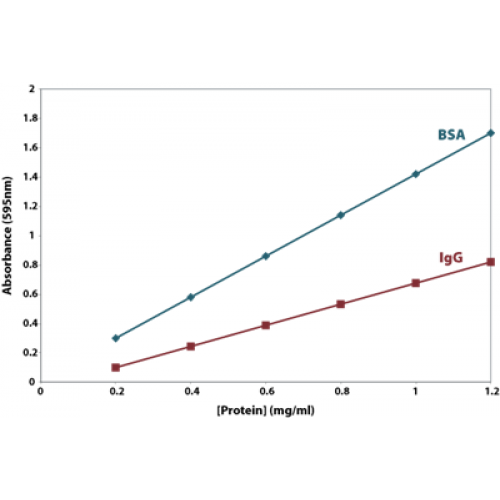 While proteolytic enzymes such as proteases and phosphatases play an important role in living cells and help ensure the survival of the organism, the mechanisms that regulate the tightly controlled cellular environment is disrupted during cell lysis. When this happens, these enzymes may start cleaving a variety of proteins that they would otherwise not touch in intact cells. This situation often leads to reduced recovery of total protein and biologically meaningless representation of protein activities.
While proteolytic enzymes such as proteases and phosphatases play an important role in living cells and help ensure the survival of the organism, the mechanisms that regulate the tightly controlled cellular environment is disrupted during cell lysis. When this happens, these enzymes may start cleaving a variety of proteins that they would otherwise not touch in intact cells. This situation often leads to reduced recovery of total protein and biologically meaningless representation of protein activities.
The same thing happens during cell lysis in laboratory settings. Instead of just releasing your protein of interest, the process also releases a number of potentially harmful proteins along with your target protein. So, instead of getting full length, functional protein, you will be left with multiple short peptides which can negatively affect the results of your Western blot. To protect the integrity of your target protein, there is one thing that you should do - use protease inhibitors.
Protease Inhibitors: What Are They and How Do They Work?
Basically, protease inhibitors are biological or chemical compounds that deactivate the protease present in the cell lysate. By reversibly or irreversibly binding to the active site or modifying the structure of the protease, these compounds prevent the hydrolysis of the protein sample so you can get more accurate results and store your lysate for extended periods of time.
Most proteases are grouped into four major classes based on the functional groups involved in the cleavage of the peptide bond. These include serine proteases, cysteine proteases, aspartic proteases and metalloproteases. Serine and cysteine (thiol) proteases both have an amino acid within the active site that performs the initial nucleophilic attack, while aspartic proteases and metalloproteases perform the initial nucleophilic attack by activating a water molecule.
Protease inhibitors can also be classified based on their mechanism of action. As such, there are reversible inhibitors and irreversible inhibitors.
Reversible inhibitors bind to the protease through multiple non-covalent interactions, and can be removed by dilution or dialysis while irreversible inhibitors alter the active site of its specific target through covalent bond formation. Upon binding, the active site of the protease is altered in such a way that it can no longer perform peptide bond hydrolysis. Some inhibitors do not covalently bind to the protease, but interact with such a high affinity, that they are not easily removed.
Common Protease Inhibitors
- AEBSF(4-(2-Aminoethyl)-benzenesulfonylfluoride hydrochloride) – a non-toxic, water-soluble alternative for PMSF. AEBSF irreversibly inhibits serine proteases.
- Aprotinin – reversibly inhibits serine proteases (trypsin, chymotrypsin and plasmin)
- Bestatin – reversibly inhibits some amino-peptidases but has low stability in aqueous solutions
- E-64 –a highly specific inhibitor that only affects cysteine proteases. E-64 is non-toxic (making it ideal for use in in vivo studies) and is highly soluble in aqueous solutions.
- EDTA/EGTA – reversibly inhibits metalloproteases but is not compatible with immobilized metal affinity chromatography (IMAC) and two-dimensional gel electrophoresis.
- Leupeptin– a reversible inhibitor for serine, cysteine, and threonine proteases. It is soluble in water, acetic acid and ethanol but has low cell permeability and low stability at working concentration. It may also affect assays for determining protein concentration.
- Pepstatin A – a highly stable that reversibly inhibits the action of aspartic proteases (pepsin, and cathepsins A and D). It is insoluble in water but is soluble in alcohol and acetic acid.
- PMSF (Phenylmethanesulfonyl fluoride) – reversibly inhibits the action of several serine proteases such as trypsin, chymotrysin and thrombin. PMSF has limited solubility and is highly unstable in aqueous solutions. Be careful when using PMSF since it is considered as a neurotoxin.
Numerous compounds have been used to inactivate or block proteases but until now, there is no single chemical that effectively works for all types of proteases. Thus, most researchers use ready-to-use "cocktails" or prepare their own mixture of several inhibitor compounds to preserve the integrity of their precious protein extracts.
Image Source:Yuri Samoilov






